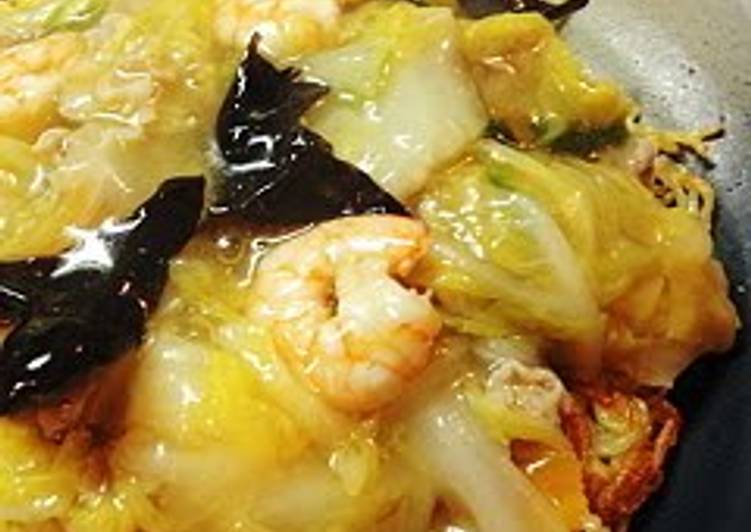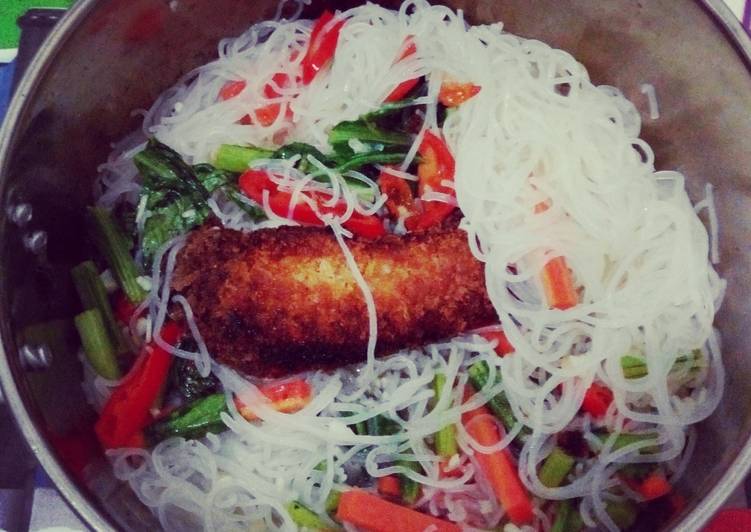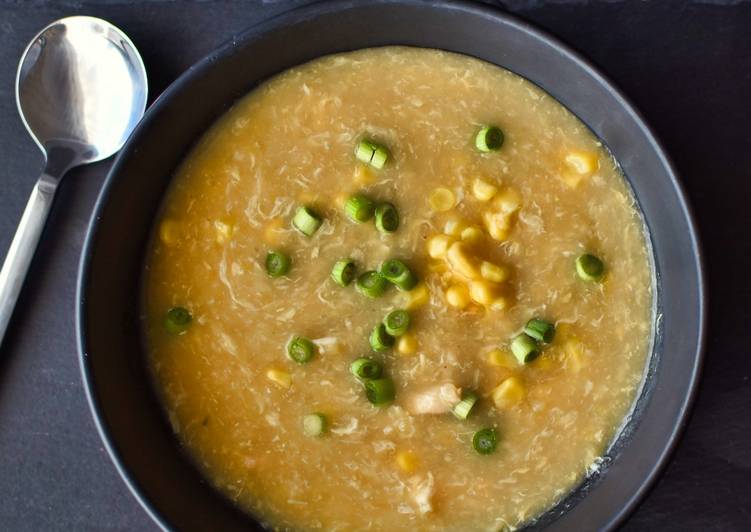
Hey everyone, it’s Jim, welcome to my recipe page. Today, I will show you a way to make a special dish, basic yakisoba noodles with seafood and thick ankake sauce. One of my favorites. For mine, I am going to make it a little bit unique. This will be really delicious.
Read Customer Reviews & Find Best Sellers. Great recipe for Basic Yakisoba Noodles with Seafood and Thick Ankake Sauce. If you simmer the squid too long, it'll harden too much, so I stir-fry it separately. You can use the vegetables that you have at.
Basic Yakisoba Noodles with Seafood and Thick Ankake Sauce is one of the most favored of current trending foods on earth. It is simple, it is fast, it tastes delicious. It is appreciated by millions every day. They’re fine and they look wonderful. Basic Yakisoba Noodles with Seafood and Thick Ankake Sauce is something that I have loved my whole life.
To begin with this particular recipe, we must first prepare a few components. You can cook basic yakisoba noodles with seafood and thick ankake sauce using 18 ingredients and 8 steps. Here is how you cook that.
The ingredients needed to make Basic Yakisoba Noodles with Seafood and Thick Ankake Sauce:
- Prepare 150 grams Pork
- Get 100 grams Shrimp
- Make ready 1/2 Squid
- Prepare 1/4 Chinese cabbage
- Prepare 1/3 Carrot
- Prepare 5 Wood ear mushrooms
- Take 1 pack Quail eggs
- Make ready 1 tbsp Chinese soup stock
- Take 1 tbsp ★Soy sauce
- Take 2 tbsp ★Sake
- Take 1 tsp ★Salt
- Get 600 ml Boiling water
- Take 1 Sesame oil
- Prepare 1 Pepper
- Prepare 4 portions Chinese steamed noodles
- Prepare 1 Snow peas
- Make ready 4 tbsp Katakuriko
- Make ready 5 tbsp Water
Classic Japanese yakisoba recipe, instead of soy sauce authentic yakisoba uses thick sweet sauce similar to Worcestershire sauce. If you prefer super crispy noodles (I prefer my noodles have some moisture), fry the noodles first and transfer them out and start cooking ingredients. Place the yakisoba in a heat-resistant dish and cover with plastic wrap. Defrost the seafood mix if it is frozen.
Instructions to make Basic Yakisoba Noodles with Seafood and Thick Ankake Sauce:
- Remove the guts from the squid. Open it up and remove the skin, then cut into 2 x 4 cm strips. De-vein the shrimp and remove the shells.
- Cut the Chinese cabbage into pieces. Cut the carrot into strips. Rehydrate the wood ear mushrooms. Boil the quail eggs and remove the shells.
- Sprinkle with a small amount of salt and sake on the squid, briefly stir-fry, and remove from a wok. Pre-season the pork with 1/2 teaspoon of soy sauce and 1 teaspoon of sake. Briefly stir-fry, and remove from the wok.
- Heat oil in the wok, and stir-fry the carrot and Chinese cabbage. Add the wood ear mushrooms and Step 3 ingredients. Add the Chinese soup stock, boiling water, and the ★ ingredients.
- When the Chinese cabbage softens, add the quail eggs. Add in the katakuriko dissolved in water. Turn up the heat to high and thicken the sauce. Adjust the taste with salt and pepper.
- Swirl in a small amount of sesame oil. Add a large amount of oil into the wok, and fry both sides of the steamed noodles.
- Serve the yakisoba noodles on a plate, pour over the thick ankake sauce, and sprinkle with boiled snow peas.
- Here is the recipe for "Salt-Flavoured Happosai (Eight Treasure Stir-Fry)". It's light and salt-flavored ankake thick sauce. - - https://cookpad.com/us/recipes/143469-%EF%BC%8A-light-and-delicious-%EF%BC%8A-salt-flavoured-happosai-eight-treasure-stir-fry-%EF%BC%8A
Place the yakisoba in a heat-resistant dish and cover with plastic wrap. Defrost the seafood mix if it is frozen. Combine the ★ ingredients in a bowl. Heat the sesame oil in a frying pan and add the microwaved noodles. They are made of wheat and best when stir-fried.
So that’s going to wrap this up for this special food basic yakisoba noodles with seafood and thick ankake sauce recipe. Thank you very much for reading. I’m sure you can make this at home. There is gonna be interesting food in home recipes coming up. Remember to save this page on your browser, and share it to your loved ones, friends and colleague. Thanks again for reading. Go on get cooking!

